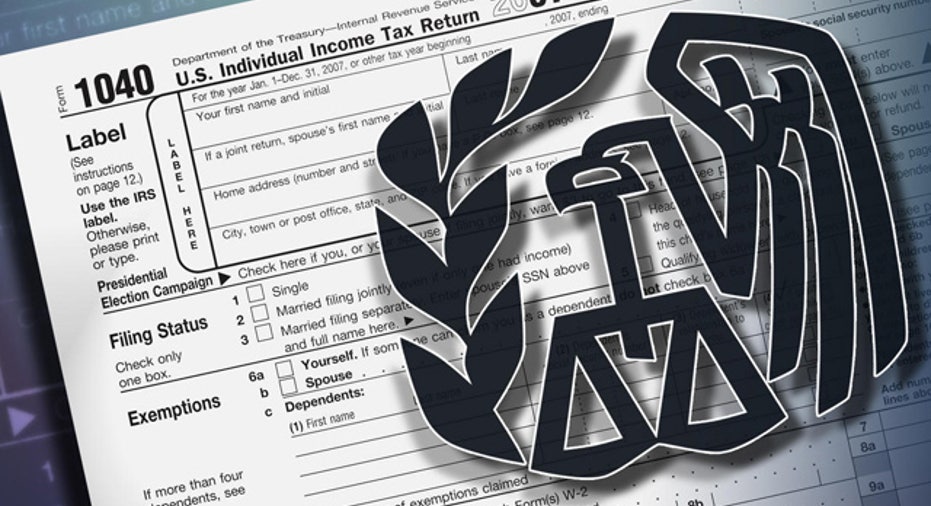House Lost Value? Get a Property Tax Do-Over

Homeowners love rising home values -- until, that is, they receive their annual property tax bill. Then, it's time to consider whether the property tax assessment is accurate, and if not, find out how to appeal it.
Property tax appeals are especially popular among homeowners today due to sharp declines in house values throughout the U.S. The reality is that not all tax assessors have kept up with these trends, which means some homes may be over-valued and thus over-taxed.
Most, though not all, U.S. states tax residential property, according to John Brusniak, president of the National Association of Property Tax Attorneys in Dallas. Other jurisdictions that also may tax real property include counties, cities, towns, school districts, utility districts, and the like. This myriad of taxing authorities means your first step must be to find out who's in charge of your property's valuation. Typically, this information is printed on your tax bill.
Deadlines are inviolable
The other first step (if two such top priorities may be allowed) is to find out the yearly deadlines to appeal the assessment. Deadlines are crucial because the process typically comes to a halt, without recourse, if you don't turn in the proper paperwork on time or show up for a hearing on a required date.
"There might be some specific small outs in various places, but for the most part, if you blow a deadline, you're done for the year," Brusniak warns.
The deadlines might be printed on your tax bill. If not, a telephone call to the assessor's office or a little online research should produce the information.
Comps trump other data
The next step is to gather data about sales of homes that are comparable to yours. These "comps" should be located in your area, approximately the same size as your home and have similar features. The data points for each comp might include the address, date of sale, sales price, square footage, and amenities. Pictures may be helpful as well.
Comps are important because they're used to establish your home's fair market value on a certain date, based on data that's specific to your property, rather than a function of the "mass appraisal" approach often employed by tax assessors.
"Under mass appraisal, (tax officers) generally value an entire neighborhood based on the data they have and then sort of homogenize the values across all the properties. When (they) do that, (there will be) errors because your property may not be like the properties near yours," Brusniak explains.
The tax assessment authority's website or bricks-and-mortar office might be the best place to find comps. A website operated by a local multiple-listing service (MLS) also may be a good resource. Other websites might be helpful as well, but keep in mind that sites may be incomplete or contain outdated or erroneous information. A search of several databases, based on the parameters of your home, should turn up some useful results.
Appeal can take months
The property tax appeals process can take place at multiple levels, such as a written form or request for a review, a citizens' panel, an assessment appeals board, or other forums. Each level will have its own rules, guidelines and deadlines, set by law or the tax authority.
The first opportunity may be an informal chat with the local assessor, while the last resort could be a full-blown lawsuit, according to Bruce Woodzell, president of the International Association of Assessing Officers in Charlottesville, Va.
"The first step is to go in and have a casual conversation with the assessor or appraiser," he explains.
How long the entire process will take depends on local resources. In some places, homeowners receive a final resolution within a few months. Elsewhere, an appeal can take a year or longer.
The process is data-driven, so homeowners should avoid emotional arguments. Assessors generally have "no connection whatsoever" to setting property tax rates or collecting property taxes, so "going in angry" or "trying to just plead for a reduction" is unlikely to succeed, Brusniak says.
"Information speaks volumes," Woodzell adds. "If you have hard facts, if you have sales data, and if you have all your information right, it really helps."
Some jurisdictions offer a tax break if you occupy your home as a principal residence, are elderly or disabled, or meet other qualifications. Generally, you must be proactive to claim these benefits, Brusniak says, so it's a good idea to call the assessor's office and ask. Again, a missed deadline may very well mean no tax break for that year.
Do-it-yourself project
Most homeowners can contest their property tax on their own or perhaps with some help from a local realty broker. Only rarely is an attorney or private appraiser necessary to the process.
"For the most part, this is a thing you can do yourself," Brusniak says. "If you have a $5 million property that's a really complex issue, then perhaps you ought to bring in an attorney who can help you."
The possibility that an appeal could trigger a higher valuation might spook some homeowners, but Brusniak suggests the risk of such an adverse outcome is small.
"Can it happen?" he says. "Yes. Does it happen? Rarely. Generally that's when there has actually been a valuation error."
The original article can be found at HSH.com:"House lost value? Get a property tax do-over"



















